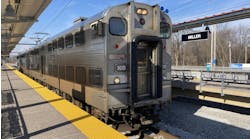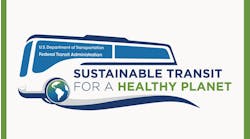A small but highly effective transportation program in Washington State's South Puget Sound region celebrates 10 years of service this year. A bright spot in today's troubled employment world, the program known as Village Vans, provides essential transportation services for low-income job seekers and workers. This first-of-its-kind transportation service has a significant, positive effect on individual lives, the local workforce, and community economic health, all for a low price tag.
The Olympia-based Village Vans program provides transportation for low-income residents pursuing employment, job training, or getting to work. Intercity Transit, Thurston County's public transportation provider and program administrator, transports qualified, low-income individuals to local destinations where they pursue education or training, pick up and drop off job applications, and go to interviews or new jobs. The individualized transportation also includes trips to child care centers and clothing and food banks in an effort to help clients find jobs and stabilize their lives.
The Village Vans program supports the community's workforce development and economic health with a multi-pronged approach. In addition to transporting qualified individuals, the program operates as a successful employment training program. Eligible driver trainees, placed usually through local employment support programs into the Village Vans Customized Job Skills Training Program, get professional work experience, job search coaching, and skill-building instruction. This on-the-job volunteer experience enables these workers to land living-wage jobs of their own. To date, 90.3 percent of these Village Vans trainees have found successful employment.
"It's a win-win-win," states Ann Bridges, the program supervisor. "This program removes a major barrier— lack of reliable transportation — and successfully moves people from government aid to economic independence while supporting workforce development. It's a triple win — for individuals, employers who gain good employees, and the community."
Now a model welfare-to-work transportation program, Village Vans began as a demonstration project with start-up funding from the FTA's Job Access, Reverse Commute Program (JARC) and the Washington State Department of Social and Health Services' WorkFirst Transportation initiative. Intercity Transit gave the pilot project a home and, 10 years and more than 54,000 trips later, Village Vans has become an established, nationally recognized local transportation program with many success stories to its credit.
Intercity Transit partners with the Department of Social and Health Services WorkFirst program, WorkSource Thurston County, South Puget Sound Community College, Pacific Mountain Workforce, the Department of Vocational Rehabilitation, Tacoma Goodwill, the Senior Community Service Employment Program, Thurston Regional Planning Council, Human Services Transportation Forum, Sound to Harbor Head Start/ECEAP and other organizations to collaborate and coordinate best practices in meeting community needs. The program is funded with federal Job Access Reverse Commute (JARC) resources and supported by volunteer drivers using grant funded vehicles.
By the Numbers:
• March 2012 Village Vans celebrates its tenth anniversary.
• Provided more than 54,000 trips over the years to more than 2,700 individuals in the urban portion of Thurston County.
• Successfully assisted 90.3 percent of its volunteers to obtain good jobs.
• Support of most community service organizations including WorkSource Thurston County, the Department of Social and Health Services and South Puget Sound Community College.
• In 2011, the program provided 5,582 trips with 5,630 volunteer hours.


